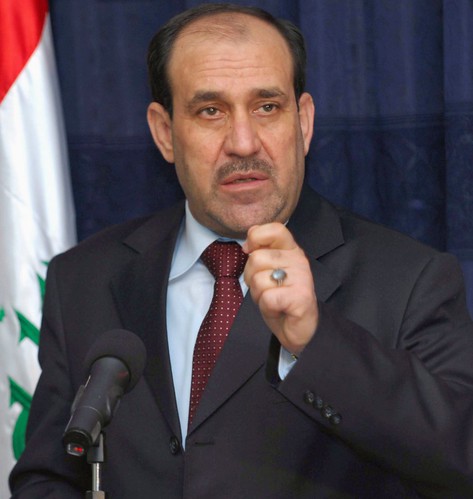
Baghdad cancelled a $4.2 billion (3.3 billion euro) weapons package with Russia on Saturday citing graft concerns, torpedoing a deal that would have made Moscow Iraq's biggest arms supplier after the US.
Cancellation of the deal, which had been announced when Prime Minister Nuri al-Maliki led a delegation to Russia last month, is a setback for Moscow's attempts to firm up its slipping foothold in the Middle East and also throws into doubt efforts by Iraq to equip its armed forces.
"The deal was cancelled," Maliki's spokesman Ali Mussawi said.
"When Maliki returned from his trip to Russia, he had some suspicions of corruption, so he decided to review the whole deal... There is an investigation going on, on this."
Mussawi declined to say who specifically was being investigated, or if Iraq would begin new negotiations with Moscow.
He also did not say exactly when the final decision was made to stop the deal.
The Russian embassy in Baghdad was not available for comment.
Had the deal been finalised and implemented, it would have made Russia Baghdad's second-biggest arms supplier, after the United States.
Russian media said the deliveries covered 30 Mi-28 attack helicopters and 42 Pantsir-S1 surface-to-air missile systems.
Discussions were also said to be underway for Iraq's eventual acquisition of a large batch of MiG-29 fighters and helicopters, along with heavy weaponry.
The statement announcing the deals said they were secretly discussed as early as April and revisited again in July and August during visits to Russia by Iraqi delegations that included acting Defence Minister Saadun al-Dulaimi.
The war ripping apart Syria threatens to unseat Moscow's sole unwavering Arab ally, Bashar al-Assad, and has made it all the more crucial for Russia to forge other regional alliances.
Russia also lost an estimated $4 billion in outstanding contracts in the NATO-led Libya offensive that toppled Moamer Kadhafi, a one-time friend of the Kremlin, and Moscow has been seeking to find a way to compensate for the loss ever since.
Iraq, meanwhile, has sought to re-equip an army that, while regarded as a capable counter-insurgency force, lacks the ability to defend the country's borders, airspace or maritime territory, according to officials.
The deal with Russia was seen by diplomats in Baghdad as a way for Iraq to avoid becoming too dependent on American military equipment, and to hold more bargaining power in weapons negotiations with Washington, which remains Baghdad's biggest arms supplier by far.
It was also a short-term measure to boost Iraq's air defence capabilities in the years before a cadre of F-16 fighter jets are delivered by the United States.
"It is not a policy to go to Russia," Deputy National Security Adviser Safa Hussein told AFP in an interview last month. "The backbone of our armaments is from the United States, but whenever it is required that we go with another country, we will go."
"The American programmes were a little slow," he added. "We can't live with this gap in our defence capabilities for a long time, and the Americans understand this."
AFP, photo by tmosprmo









































